The first ASEAN-German Education and Vocational Training Forum opened its doors in Hamburg on 2 March 2018.
The event was organised by iMOVE together with the Hamburg Chamber of Industry and Commerce and the German Asia-Pacific Business Association (OAV).
The focus of the conference was discussion and exchange between partners on the themes of successful vocational education and training cooperation, and the prospects for future collaboration.
Talent Pool Asia - Regional Spotlights: 1st ASEAN-German Education and Vocational Training Forum
Companies should take greater responsibility for vocational education and training
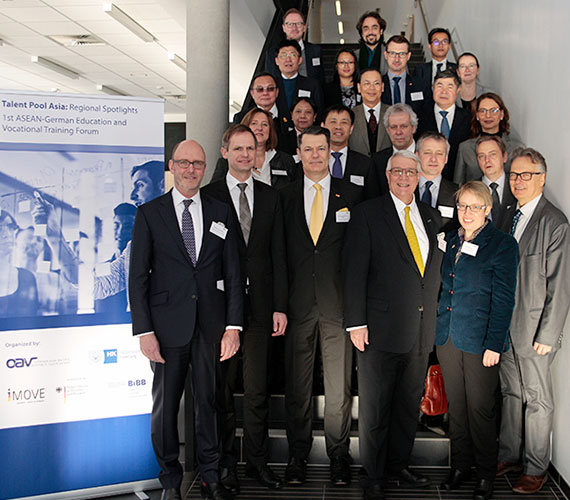
The first vocational education and training forum took place as part of the 98th Asia-Pacific "Liebesmahl" ceremonial dinner - a traditional annual event dating back to the 1900s.
The Hamburg Institute for Vocational Education and Training (HIBB) provided support for the meeting and made it possible for the event to take place on the premises of the Vocational School for Media and Communication (BMK).
The focus of the conference – held under the auspices of the Federal Ministry of Education and Research (BMBF) – was discussion and exchange between partners on successful vocational education and training (VET) cooperation, and the prospects for future collaboration.
One third of the 100 participants comprised international experts coming predominantly from Vietnam, Thailand and the Philippines. Among the guests were representatives of all ASEAN region countries with the exception of Laos.
The Hamburg Institute for Vocational Education and Training (HIBB) provided support for the meeting and made it possible for the event to take place on the premises of the Vocational School for Media and Communication (BMK).
The focus of the conference – held under the auspices of the Federal Ministry of Education and Research (BMBF) – was discussion and exchange between partners on successful vocational education and training (VET) cooperation, and the prospects for future collaboration.
One third of the 100 participants comprised international experts coming predominantly from Vietnam, Thailand and the Philippines. Among the guests were representatives of all ASEAN region countries with the exception of Laos.
Industry must become the driver of vocational training and continuing education
Representatives of the event organisers underlined the huge significance of vocational training and continuing education due to the growing shortage of skilled workers worldwide.
In light of this, the successful German dual system, which delivers both technical and social competencies, serves as a benchmark in numerous countries of the rapidly developing ASEAN region with its young population.
The speakers highlighted the diversity of the different countries and cultures in the region which is reflected in the range of different requirements. This must be taken into account both as part of the training solutions offered as well as when working on a partnership basis.
One thing which the different training systems have in common however is that each government acts as a driver of development and also emphasizes school-based learning in vocational education and training. This is an obvious difference compared to the German system in which industry plays a key role in determining the processes and regulations and in which there is a clear focus on practical training.
In light of this, the successful German dual system, which delivers both technical and social competencies, serves as a benchmark in numerous countries of the rapidly developing ASEAN region with its young population.
The speakers highlighted the diversity of the different countries and cultures in the region which is reflected in the range of different requirements. This must be taken into account both as part of the training solutions offered as well as when working on a partnership basis.
One thing which the different training systems have in common however is that each government acts as a driver of development and also emphasizes school-based learning in vocational education and training. This is an obvious difference compared to the German system in which industry plays a key role in determining the processes and regulations and in which there is a clear focus on practical training.
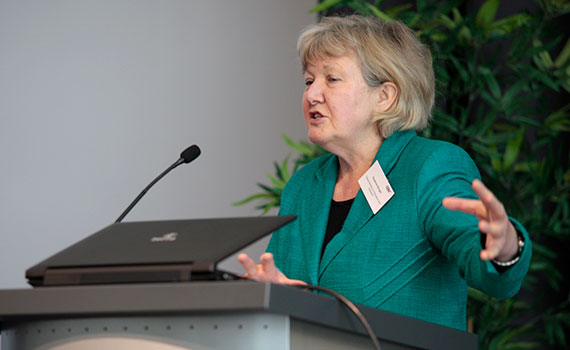
Susanne Burger, German Federal Ministry of Education and Research
Susanne Burger, Deputy Director of the Federal Ministry of Education and Research, stressed how important it is to view training from the perspective of business and to communicate the fundamental motivation behind the German model.
She referred to important challenges for vocational education and training in Germany, including the development of Training 4.0 with new general conditions for the labour market and new responsibilities for training and teaching personnel, the integration of refugees, and the growing trend of young people aiming for a university degree.
With reference to the new BMBF programme "Training worldwide", which supports the international mobility of trainees, Burger invited governments of the ASEAN states to support secondments for their trainees in Germany.
The Thai ambassador Dr. Dhiravat Bhumichitr, Chair of the Berlin ASEAN Committee (BAC), referred to the German dual system as an important inspiration for the countries of Southeast Asia, adding that the increasing economic power in the region is also evident in the growing middle classes. He also made reference to numerous joint VET projects between German and Southeast Asian partners.
Professor Dr. Hubert Ertl, Vice President and Director of Research of the Federal Institute for Vocational Education and Training (BIBB) presented a recent BIBB cost-benefit analysis of vocational education and training in Germany.
According to these, training incurs average costs of €11,000, although for one third of companies the measurable financial benefits of training outweigh the costs. Companies identify further cost savings in job advertisements and new employee induction and also point to image benefits for their organisations. The figures provide evidence that overall investment in training is very profitable for companies and that this, in some cases, already comes into effect during the training itself. They are also a statement of the commitment of 430,000 training companies in Germany who, for their part, are continually raising the quality and relevance of vocational education and training.
She referred to important challenges for vocational education and training in Germany, including the development of Training 4.0 with new general conditions for the labour market and new responsibilities for training and teaching personnel, the integration of refugees, and the growing trend of young people aiming for a university degree.
With reference to the new BMBF programme "Training worldwide", which supports the international mobility of trainees, Burger invited governments of the ASEAN states to support secondments for their trainees in Germany.
The Thai ambassador Dr. Dhiravat Bhumichitr, Chair of the Berlin ASEAN Committee (BAC), referred to the German dual system as an important inspiration for the countries of Southeast Asia, adding that the increasing economic power in the region is also evident in the growing middle classes. He also made reference to numerous joint VET projects between German and Southeast Asian partners.
Professor Dr. Hubert Ertl, Vice President and Director of Research of the Federal Institute for Vocational Education and Training (BIBB) presented a recent BIBB cost-benefit analysis of vocational education and training in Germany.
According to these, training incurs average costs of €11,000, although for one third of companies the measurable financial benefits of training outweigh the costs. Companies identify further cost savings in job advertisements and new employee induction and also point to image benefits for their organisations. The figures provide evidence that overall investment in training is very profitable for companies and that this, in some cases, already comes into effect during the training itself. They are also a statement of the commitment of 430,000 training companies in Germany who, for their part, are continually raising the quality and relevance of vocational education and training.
Session 1
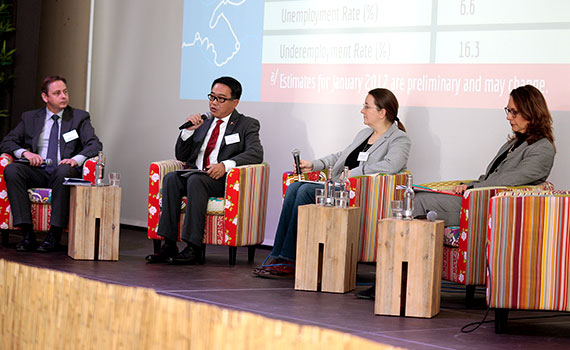
Digitalisation brings both opportunities and challenges for vocational education and training
The main focus of the first panel session was incentive systems for creating jobs and training positions, standardised certificates, and the impact of digitalisation on vocational education and training worldwide.
Rowel S. Barba, Minister in the Philippine Department for Trade and Industry, explained that in his country a range of strategies are deployed in order to increase trainee numbers and the quality of vocational education and training. Besides a national development plan and putting in place an advisory team for the development of vocational competencies, this also includes financial and tax incentives for trainees and companies. These are intended to help in particular with producing skilled workers and generating training positions in a range of key sectors.
Dr. Susanne Franke, Deputy Head of Company Cooperation at Don Bosco Mondo, emphasised the intensive collaboration which her organisation is involved in with German industry and local German chambers for the purpose of creating appropriate training courses. She identified job placements following training as a key problem. In terms of digitalisation, she highlighted the opportunities arising, for example, due to significant leaps in development resulting from the opening up of rural regions.
Birgit Schweeberg, Head of Hamburg Chamber Consult, described standardised certificates as an important element in a training system which also provides assurance to business. She recommended stronger international promotion of the quality of German certificates and predicted growth in the importance of system consultancy in the future. She advised a calm approach with regard to dynamic VET developments, triggered for example by digitalisation, since the basic knowledge which needs to be delivered in training does not change quite so quickly as many fear.
Rowel S. Barba, Minister in the Philippine Department for Trade and Industry, explained that in his country a range of strategies are deployed in order to increase trainee numbers and the quality of vocational education and training. Besides a national development plan and putting in place an advisory team for the development of vocational competencies, this also includes financial and tax incentives for trainees and companies. These are intended to help in particular with producing skilled workers and generating training positions in a range of key sectors.
Dr. Susanne Franke, Deputy Head of Company Cooperation at Don Bosco Mondo, emphasised the intensive collaboration which her organisation is involved in with German industry and local German chambers for the purpose of creating appropriate training courses. She identified job placements following training as a key problem. In terms of digitalisation, she highlighted the opportunities arising, for example, due to significant leaps in development resulting from the opening up of rural regions.
Birgit Schweeberg, Head of Hamburg Chamber Consult, described standardised certificates as an important element in a training system which also provides assurance to business. She recommended stronger international promotion of the quality of German certificates and predicted growth in the importance of system consultancy in the future. She advised a calm approach with regard to dynamic VET developments, triggered for example by digitalisation, since the basic knowledge which needs to be delivered in training does not change quite so quickly as many fear.
Session 2
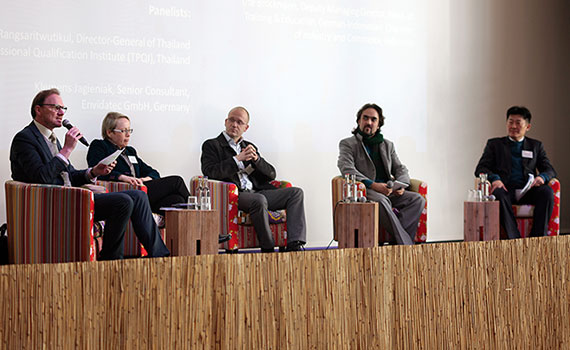
Image improvement is a critical success factor
The emphasis of the second panel session was on successfully completed cooperation projects and the prospects for future collaboration between partners from Germany and the ASEAN region.
Pisit Rangsaritwutikul, Director of the Thailand Professional Qualification Institute (TPQI), stressed that, in terms of the economy, skilled workers enable a more individual and flexible response to challenges. His government is therefore seeking to reduce both the shortage in skilled workers and the discrepancy between business requirements and the competencies delivered in training. As critical success factors, he identified the use of vocational education and training to generate added value and rebranding to enhance the status of VET in society.
Klemens Jagieniak was representing Envidatec as senior consultant. The company provide engineering services for environmental technologies. He stressed the importance of the fair and equal partnerships characterized by mutual learning and growth. He also identified public-private partnerships as an important tool.
Professor Dr. Utz Dornberger from the University of Leipzig discussed the huge demand among qualified technicians in Vietnam for also acquiring a degree. A corresponding programme known as Senior Vocational Education in Vietnam (FiVe) was launched with German support in 2017. In addition to the full-time model available, industry is also requesting a vocational offer of this type as well as official recognition by the Vietnamese state.
Ute Brockmann, Deputy Managing Director of the German-Indonesian Chamber of Industry and Commerce (AHK), provided information on the successful launch of a training programme for industrial mechanics. In her view, increased activity by German organisations on site is worthwhile because many are only able to operate with limited capacities. She would like to see an effective link between companies and government. The Chamber of Industry and Commerce is setting up a training platform (ICCQ) in order to meet the demand from local companies for tailored training. Ute Brockmann invited training providers present to use the fee-based platform.
Pisit Rangsaritwutikul, Director of the Thailand Professional Qualification Institute (TPQI), stressed that, in terms of the economy, skilled workers enable a more individual and flexible response to challenges. His government is therefore seeking to reduce both the shortage in skilled workers and the discrepancy between business requirements and the competencies delivered in training. As critical success factors, he identified the use of vocational education and training to generate added value and rebranding to enhance the status of VET in society.
Klemens Jagieniak was representing Envidatec as senior consultant. The company provide engineering services for environmental technologies. He stressed the importance of the fair and equal partnerships characterized by mutual learning and growth. He also identified public-private partnerships as an important tool.
Professor Dr. Utz Dornberger from the University of Leipzig discussed the huge demand among qualified technicians in Vietnam for also acquiring a degree. A corresponding programme known as Senior Vocational Education in Vietnam (FiVe) was launched with German support in 2017. In addition to the full-time model available, industry is also requesting a vocational offer of this type as well as official recognition by the Vietnamese state.
Ute Brockmann, Deputy Managing Director of the German-Indonesian Chamber of Industry and Commerce (AHK), provided information on the successful launch of a training programme for industrial mechanics. In her view, increased activity by German organisations on site is worthwhile because many are only able to operate with limited capacities. She would like to see an effective link between companies and government. The Chamber of Industry and Commerce is setting up a training platform (ICCQ) in order to meet the demand from local companies for tailored training. Ute Brockmann invited training providers present to use the fee-based platform.
Closing Panel
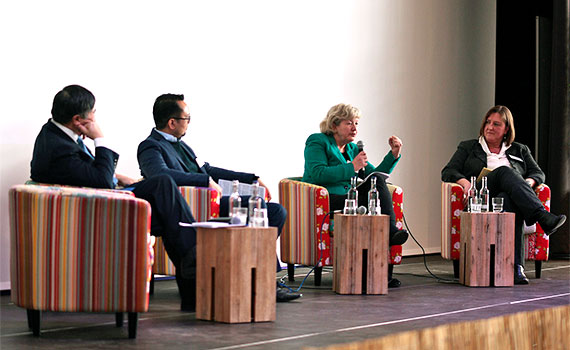
The definition of goals is a requirement for successful partnerships
In the final panel, experts took a look at the prospects for vocational education cooperation.
The Vietnamese ambassador Doan Xuan Hung expressed his country's strong interest in working together with German partners. He is seeking support in understanding how to persuade more companies to offer training and how training can be financed. He identified information technology, tourism and the processing industries as key growth sectors in his country.
Syarkawi Bin Muhammad from the Malaysian General Consulate referred to his government's TVET master plan involving a large number of participating ministries which is due to be introduced soon. The aim of this plan is to train 29,000 new trainers by 2025. All TVET institutions are also to be unified and their naming is to be standardized.
In conclusion, Susanne Burger (BMBF) called for discussions at system level, for specific projects to be clearly separated from one another at all times, and for an understanding of objectives to be achieved in each case to be developed as precisely as possible. She pointed out that industry is not able to assume responsibility unless this is delegated by government and that this demands cooperation by both parties.
The Vietnamese ambassador Doan Xuan Hung expressed his country's strong interest in working together with German partners. He is seeking support in understanding how to persuade more companies to offer training and how training can be financed. He identified information technology, tourism and the processing industries as key growth sectors in his country.
Syarkawi Bin Muhammad from the Malaysian General Consulate referred to his government's TVET master plan involving a large number of participating ministries which is due to be introduced soon. The aim of this plan is to train 29,000 new trainers by 2025. All TVET institutions are also to be unified and their naming is to be standardized.
In conclusion, Susanne Burger (BMBF) called for discussions at system level, for specific projects to be clearly separated from one another at all times, and for an understanding of objectives to be achieved in each case to be developed as precisely as possible. She pointed out that industry is not able to assume responsibility unless this is delegated by government and that this demands cooperation by both parties.
© Photos: OAV - German Asia-Pacific Business Association

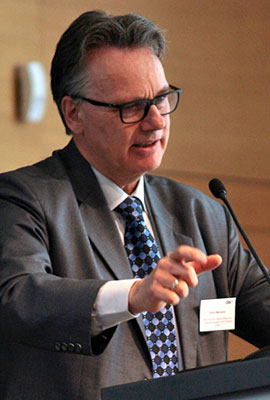
Ulrich Meinecke, iMOVE
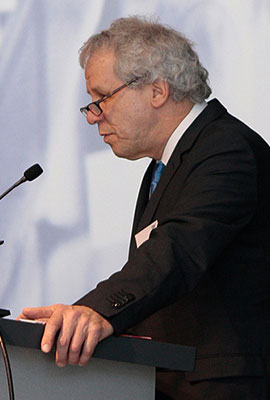
Reinhard Damm, Hamburg Institute for Vocational Education and Training
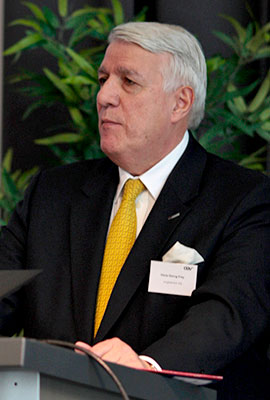
Hans-Georg Frey, German Asia-Pacific Business Association
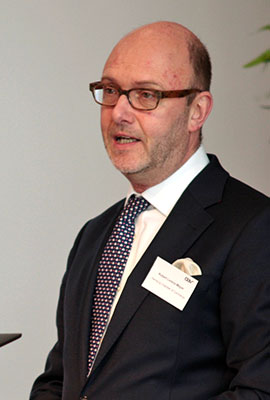
Robert Lorenz-Meyer, Hamburg Chamber of Commerce
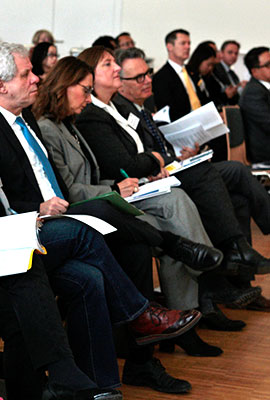
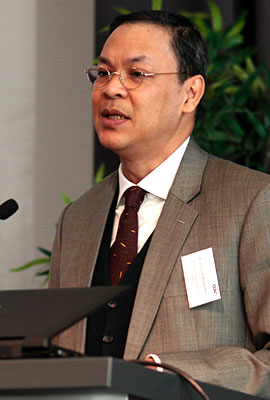
Dr. Dhiravat Bhumichitr, Kingdom of Thailand, Berlin ASEAN Committee
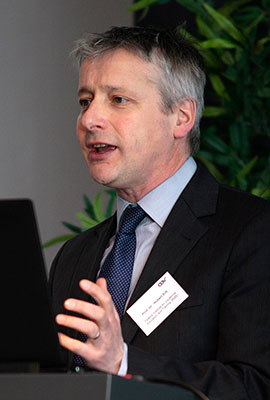
Professor Dr. Hubert Ertl, Federal Institute for Vocational Education and Training
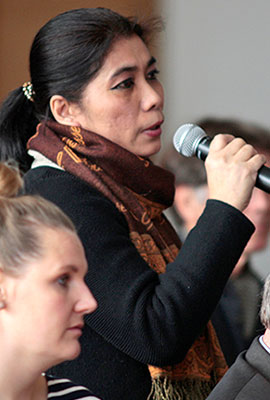
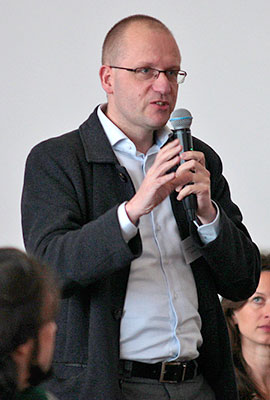
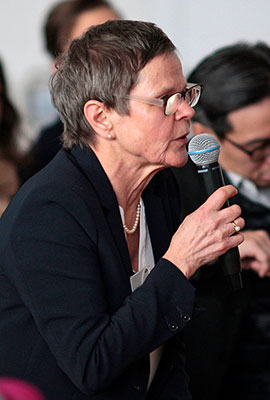
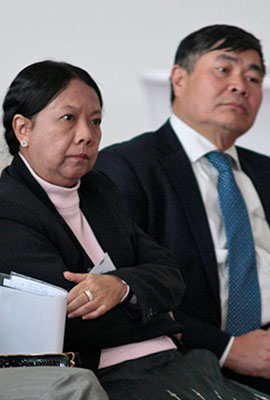
This content is available in English only.
Opening Ceremony
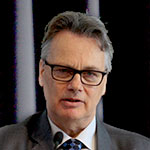
Ulrich Meinecke
Head of Division iMOVE: Training – Made in Germany at the Federal Institute for Vocational Education and Training (BIBB), Germany
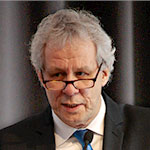
Reinhard Damm
Deputy CEO, Hamburg Institute for Vocational Education and Training (HIBB), Germany
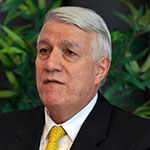
Hans-Georg Frey
Chairman of the Board of Management, Jungheinrich AG, Chairman of German Asia-Pacific Business Association (OAV), Germany

Robert Lorenz-Meyer
Commissioner for International Affairs, Hamburg Chamber of Commerce, Germany
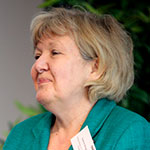
Susanne Burger
Head of Directorate "Europe", Federal Ministry of Education and Research, Germany
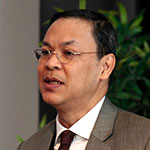
His Excellency Dr. Dhiravat Bhumichitr
Ambassador of the Kingdom of Thailand to the Federal Republic of Germany, Chair of the Berlin ASEAN Committee, Thailand

Professor Dr. Hubert Ertl • Keynote
Vice President and Director of Research at the Federal Institute for Vocational Education and Training (BIBB), Germany
Developments and Perspectives – Education Initiatives in ASEAN / Participation of Industry in Technical and Vocational Training (TVET)
Session 1

Marco Walde • Chair
Chief Representative of German Industry and Commerce in Viet Nam, Viet Nam
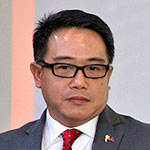
Rowel S. Barba
Undersecretary (Vice Minister), Department of Trade and Industry, Philippines
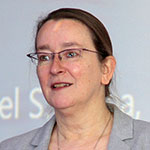
Dr. Susanne Franke
Deputy Director Corporate Cooperation, Don Bosco Mondo, Germany
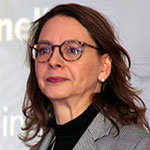
Birgit Schweeberg
Deputy Director Special Projects, Chamber of Commerce Hamburg, "Chamber Representative TVET-Hamburg", TVET Hamburg, Germany
Successful ASEAN-German Cooperation in the TVET Sector
Session 2
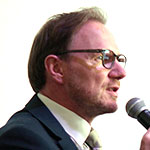
Alexander Strecker • Chair
Managing Director, Alexander Strecker Management Consulting & Training, Germany
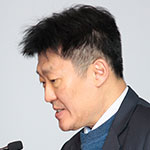
Pisit Rangsaritwutikul
Director-General, Thailand Professional Qualification Institute (TPQI), Thailand

Klemens Jagieniak
Senior Consultant, Envidatec GmbH, Germany
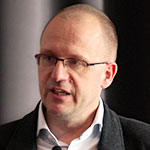
Professor Dr. Utz Dornberger
Director SEPT (Small Enterprise Promotion and Training) Center, Leipzig University, Germany
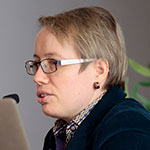
Ute Brockmann
Deputy Managing Director, Head of Training and Education, German-Indonesian Chamber of Industry and Commerce, Indonesia
Perspectives of ASEAN-German Collaboration
Closing Panel
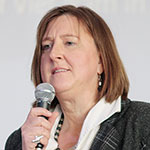
Birgit Thomann • Chair
Head of Department Internationalisation of Vocational Education and Training / Knowledge Management at the Federal Institute for Vocational Education and Training (BIBB), Germany
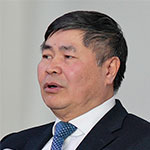
His Excellency Doan Xuan Hung
Ambassador Extraordinary and Plenipotentiary of the Socialist Republic of Viet Nam in the Federal Republic of Germany, Viet Nam
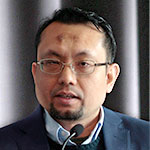
Syarkawi Bin Muhammad
Consul for Education and Training, Consulate General of Malaysia, Malaysia

Susanne Burger
Head of Directorate "Europe", Federal Ministry of Education and Research, Germany
© Photos: OAV - German Asia-Pacific Business Association
This content is available in English only.
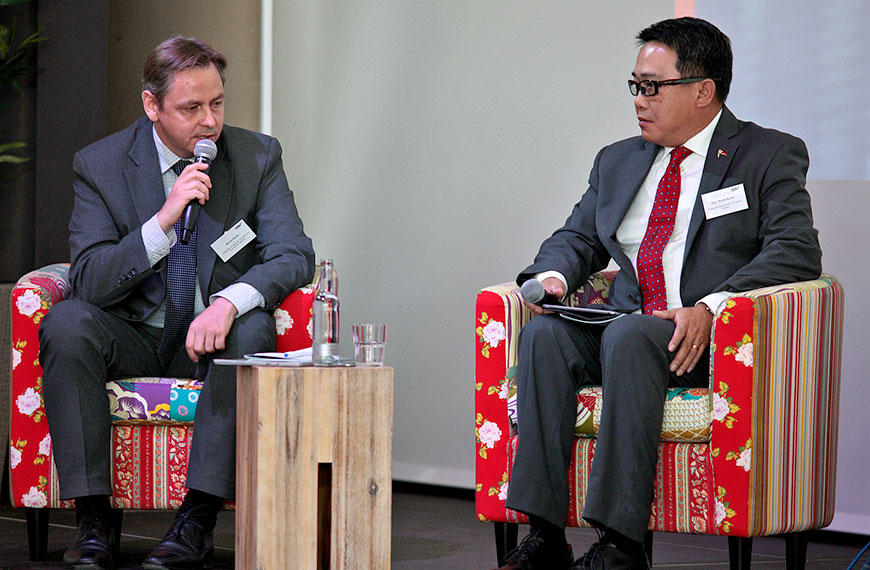
Session 1
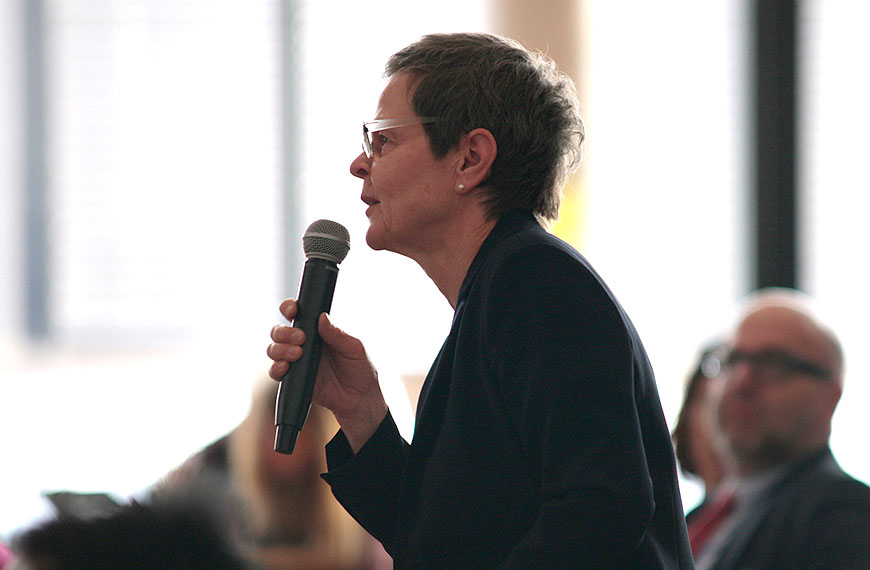
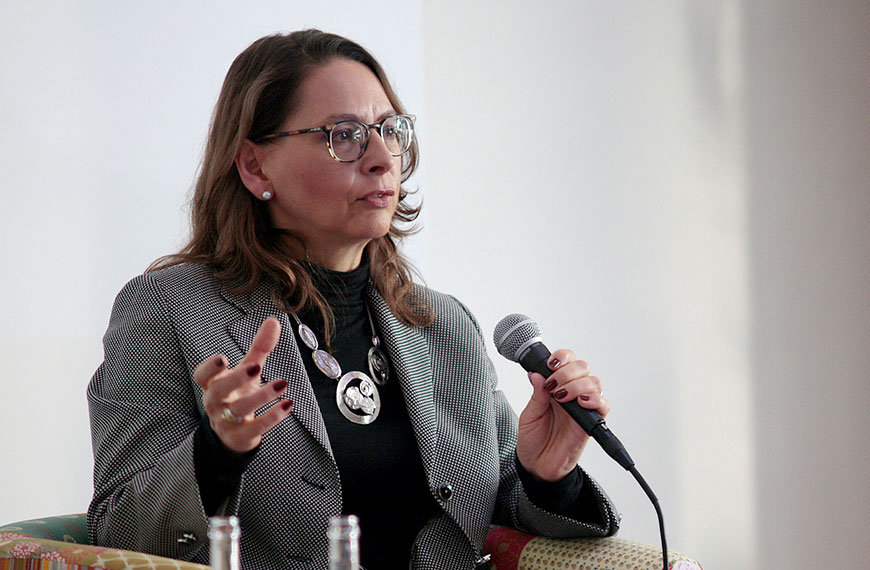
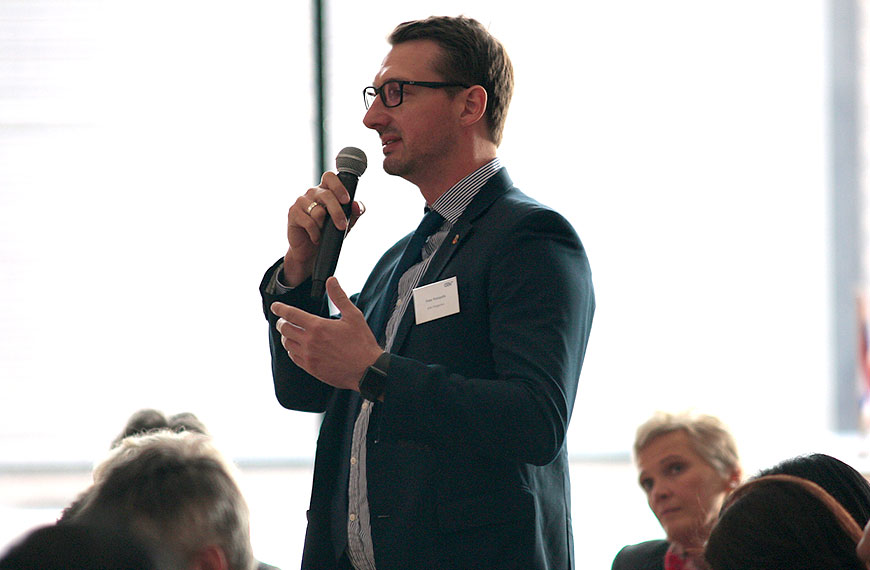
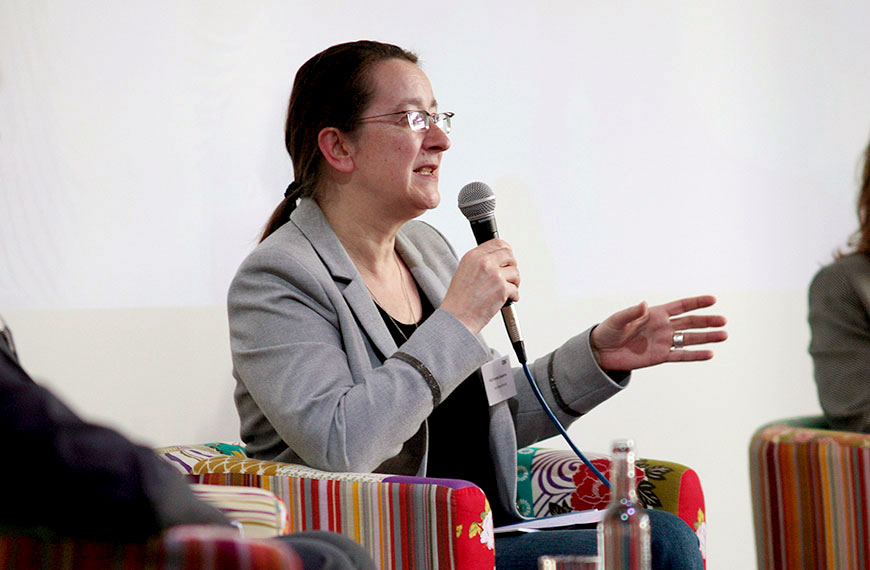
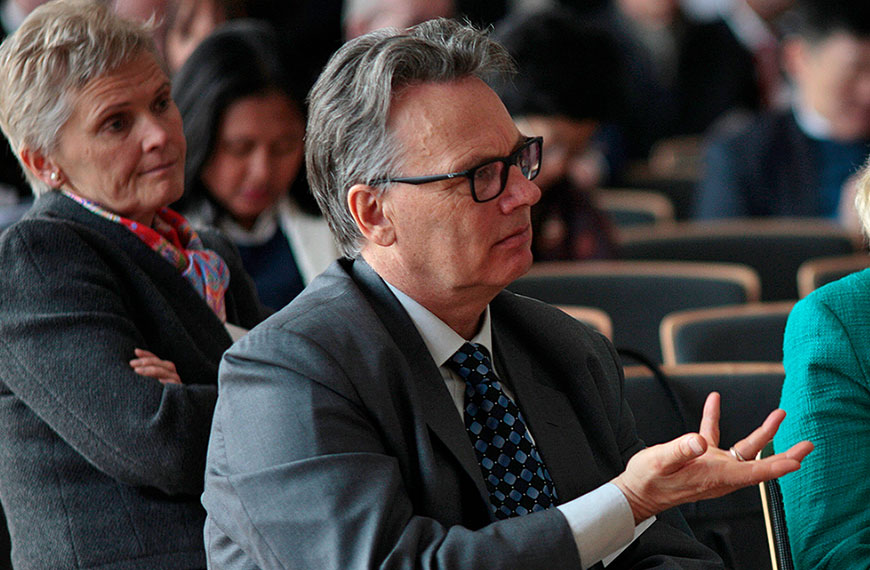
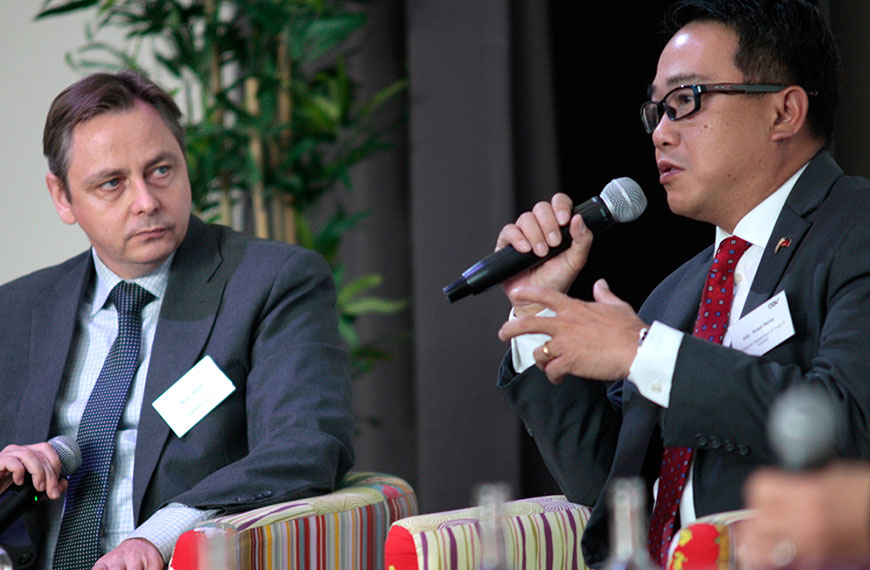
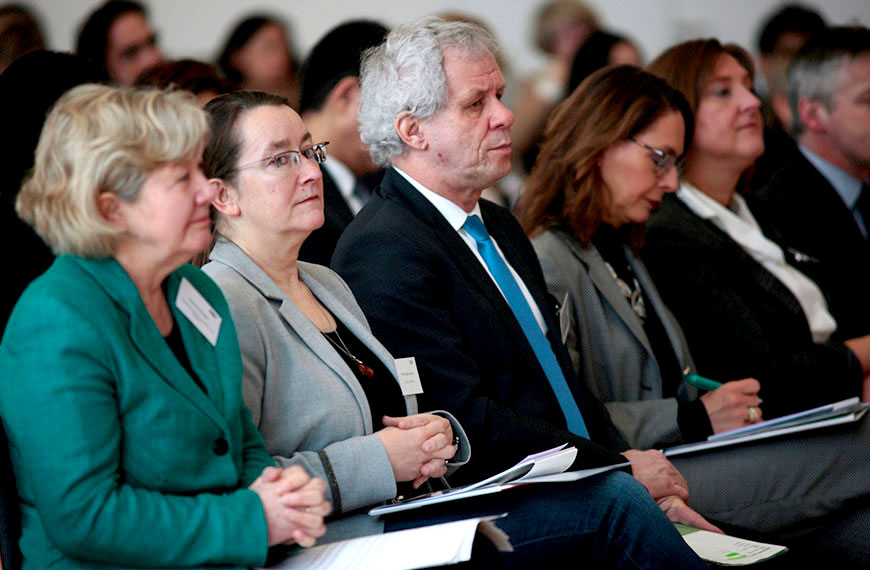
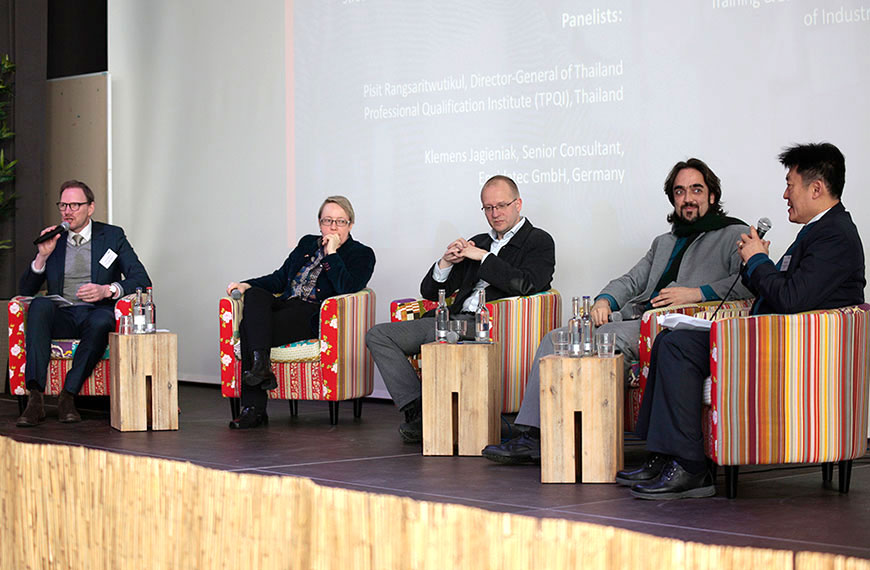
Session 2
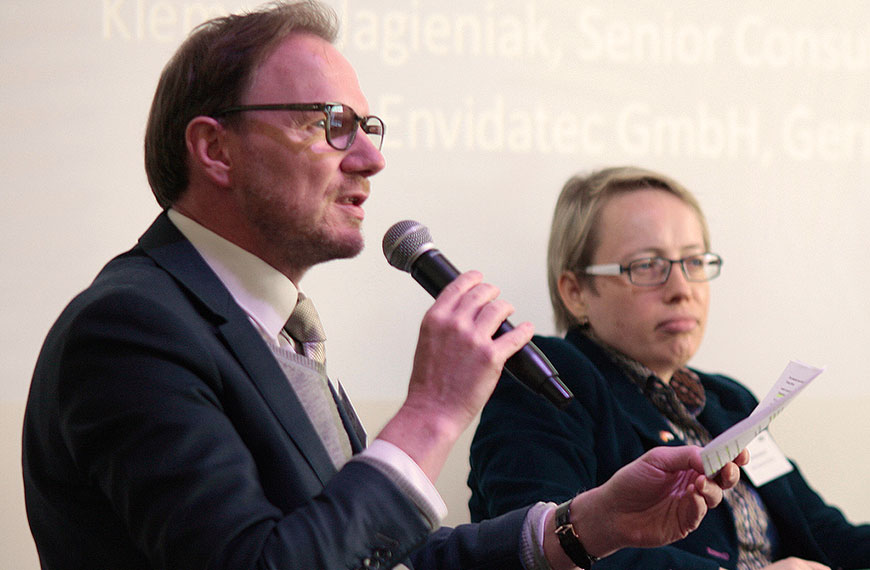
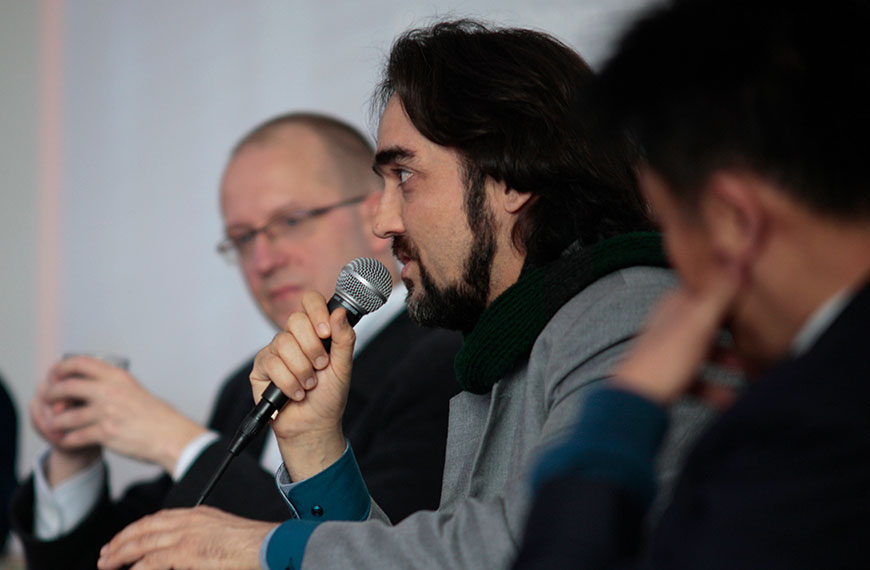
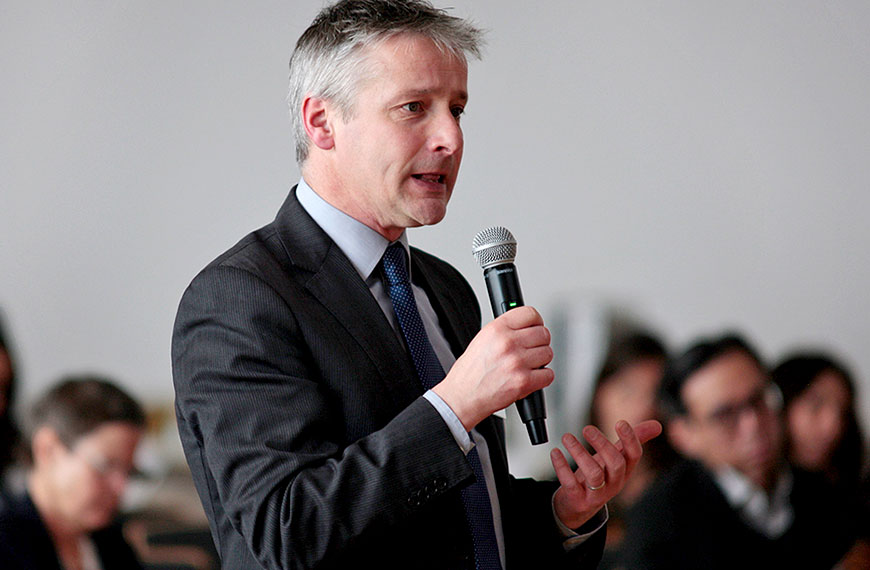
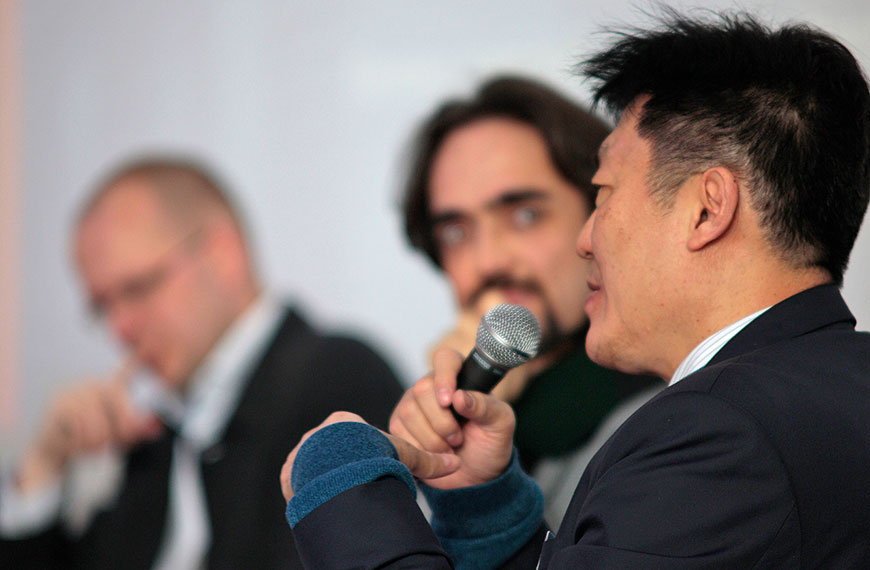
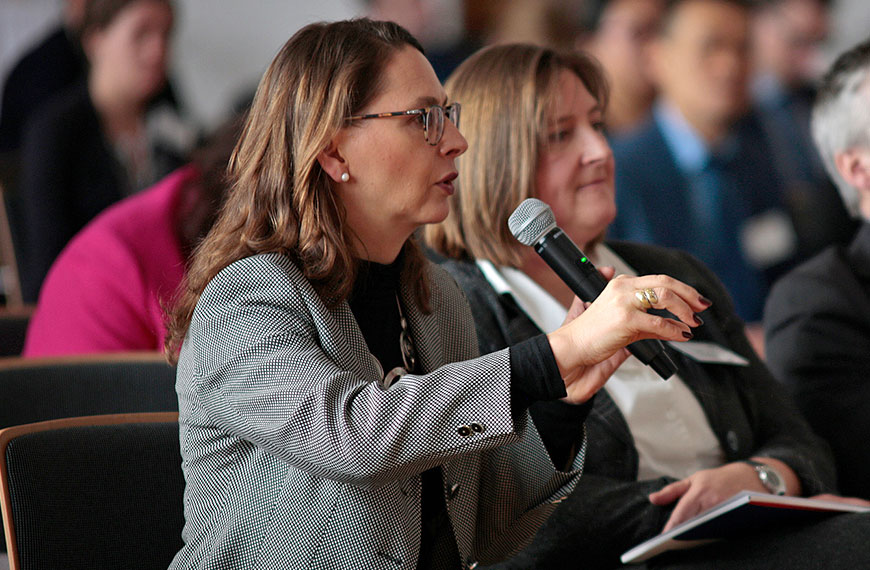
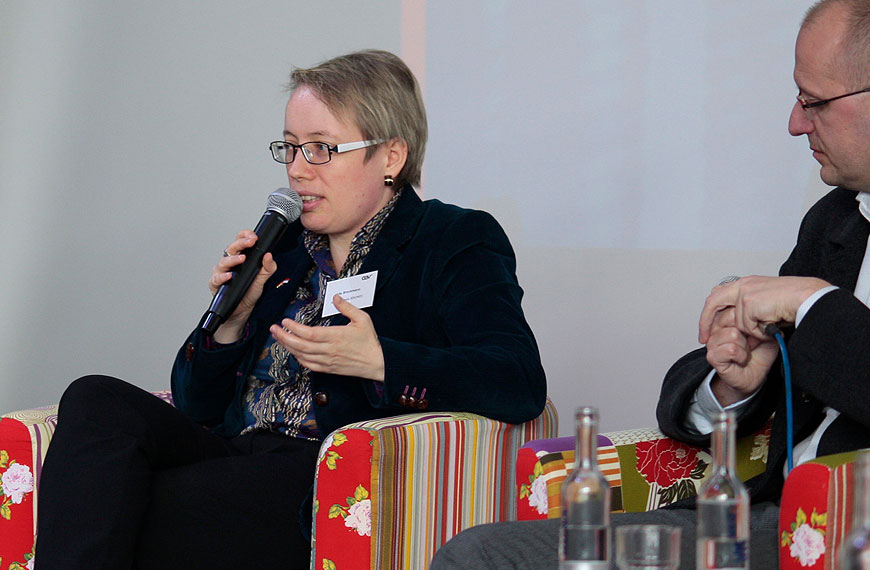
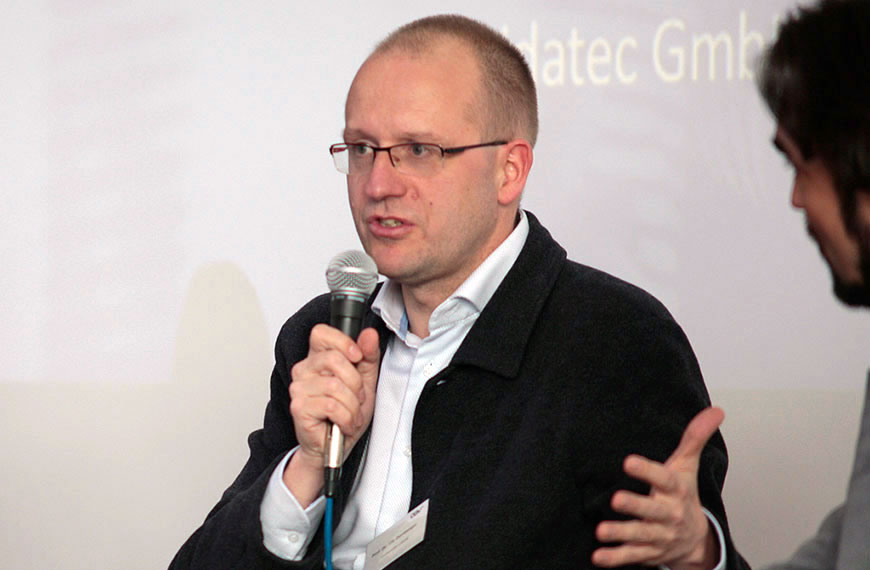
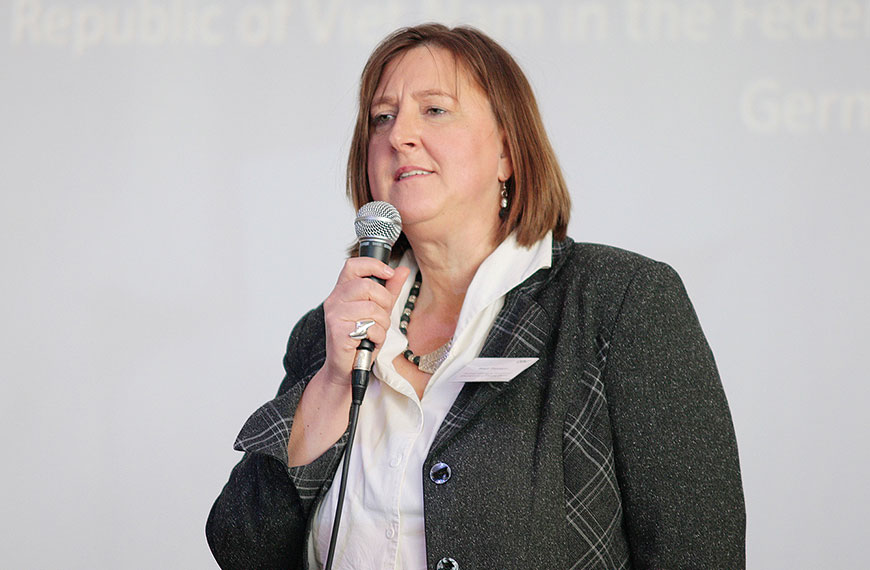
Closing Panel
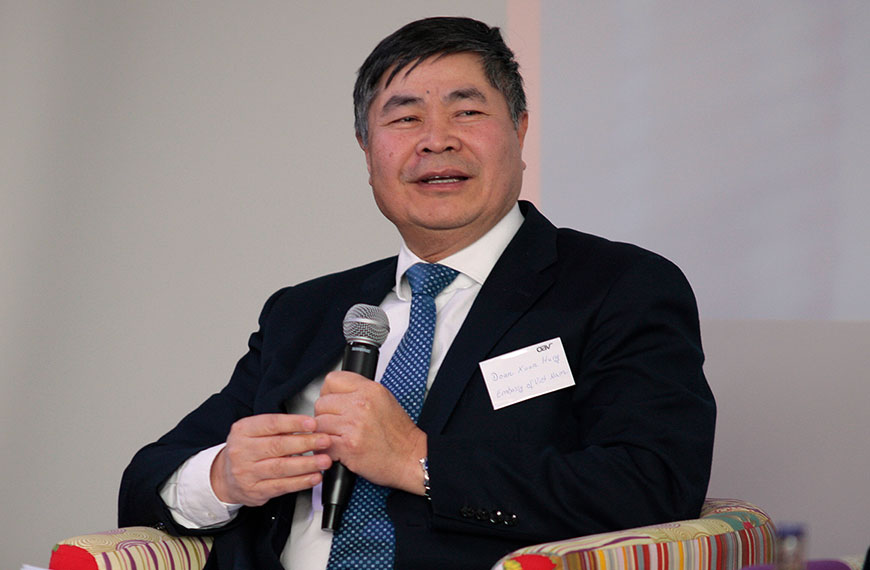
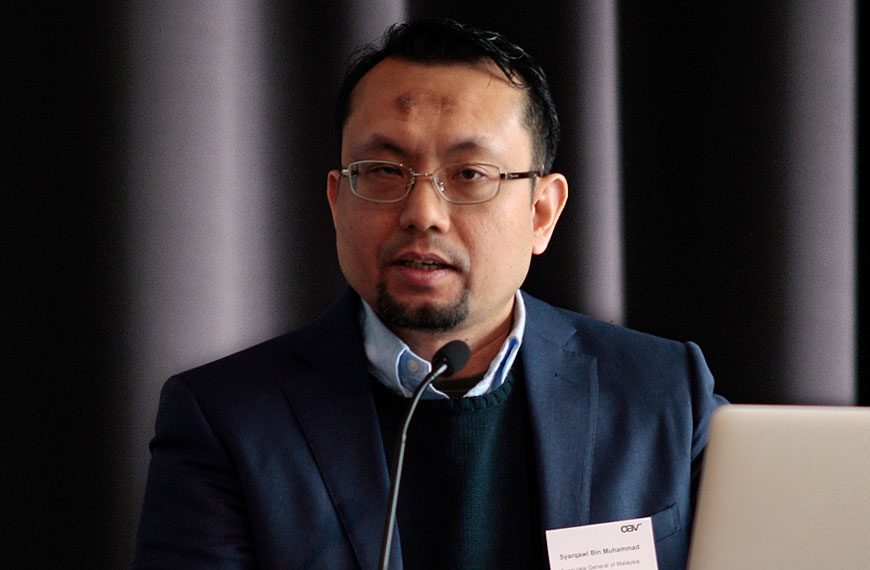
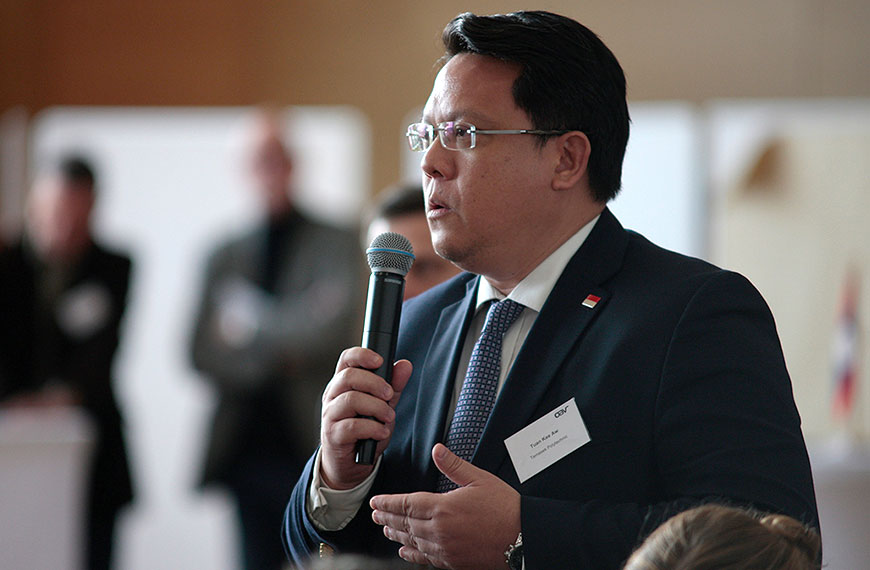
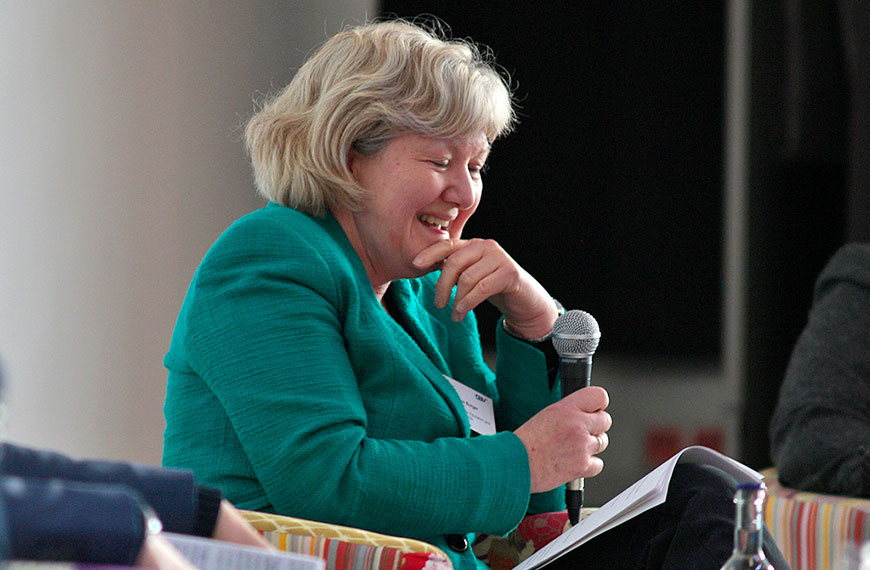
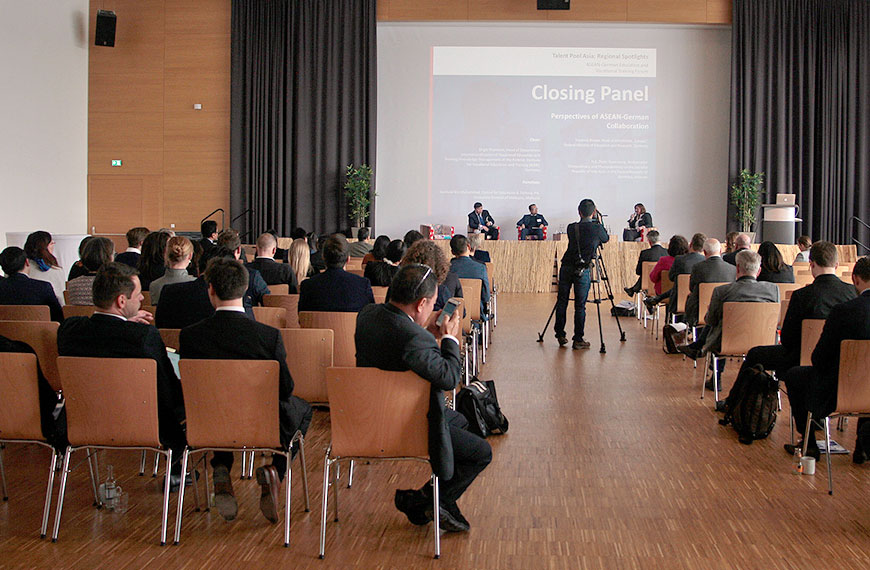
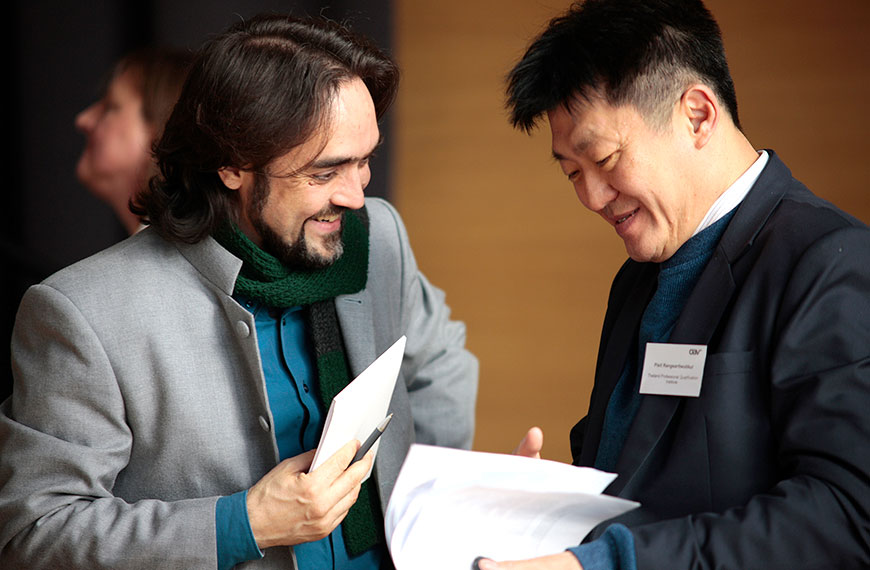
Impressions
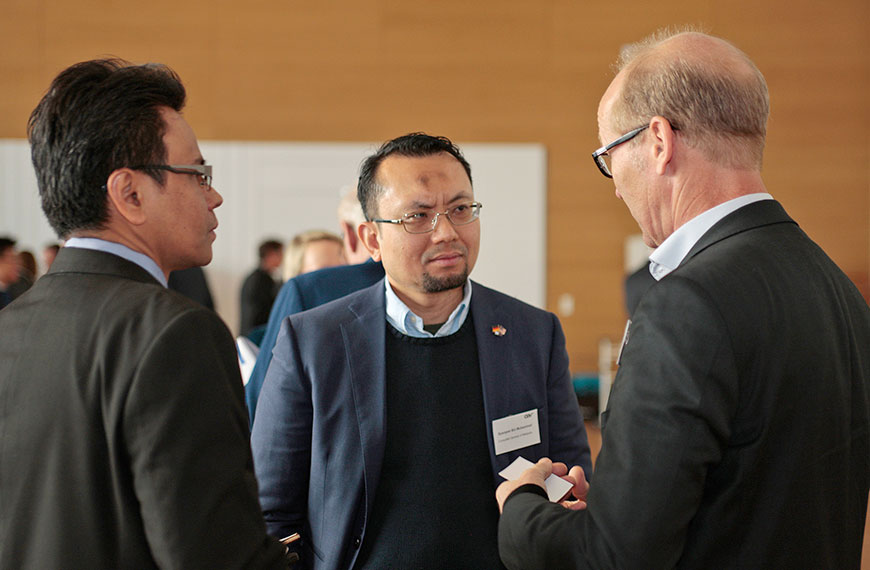
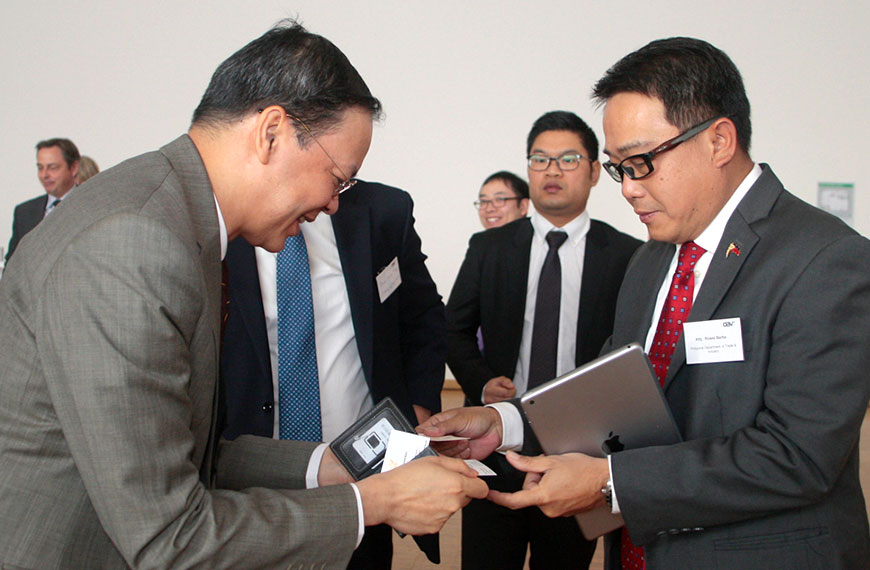
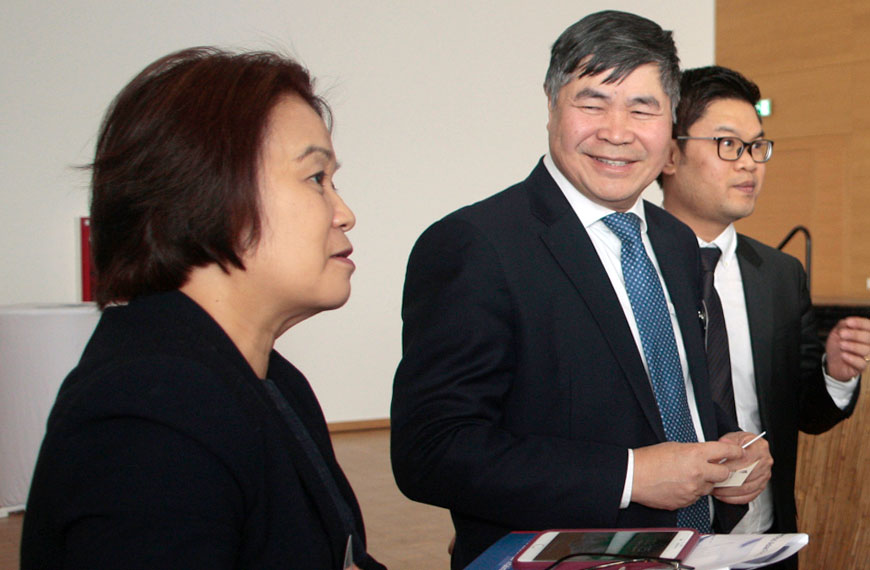
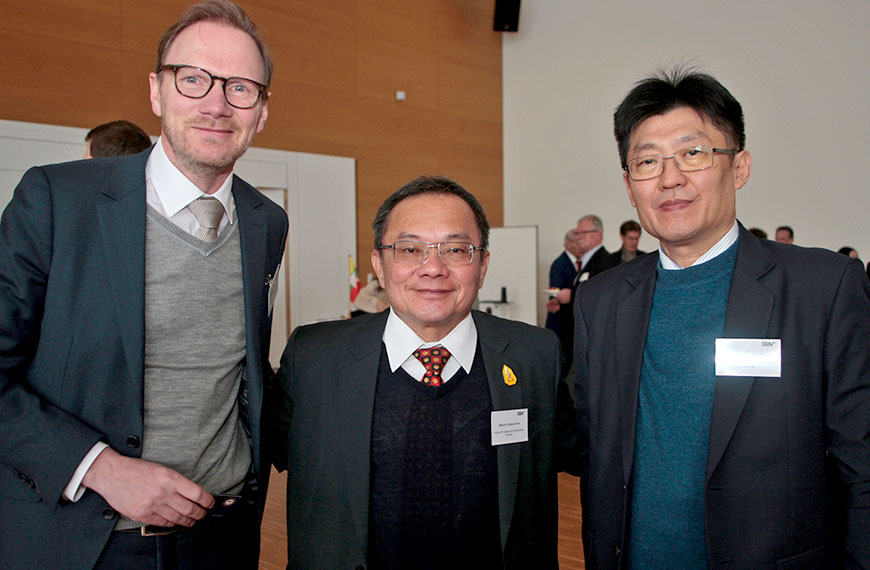

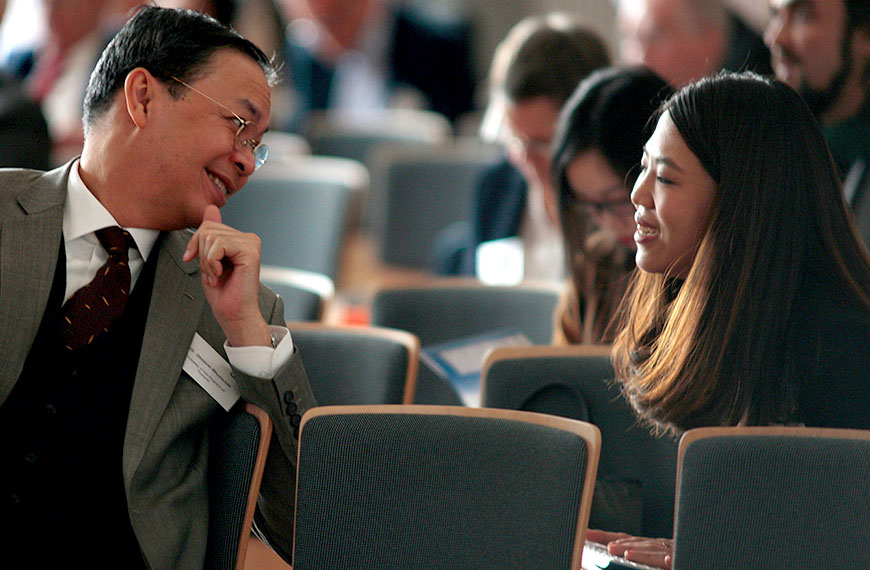
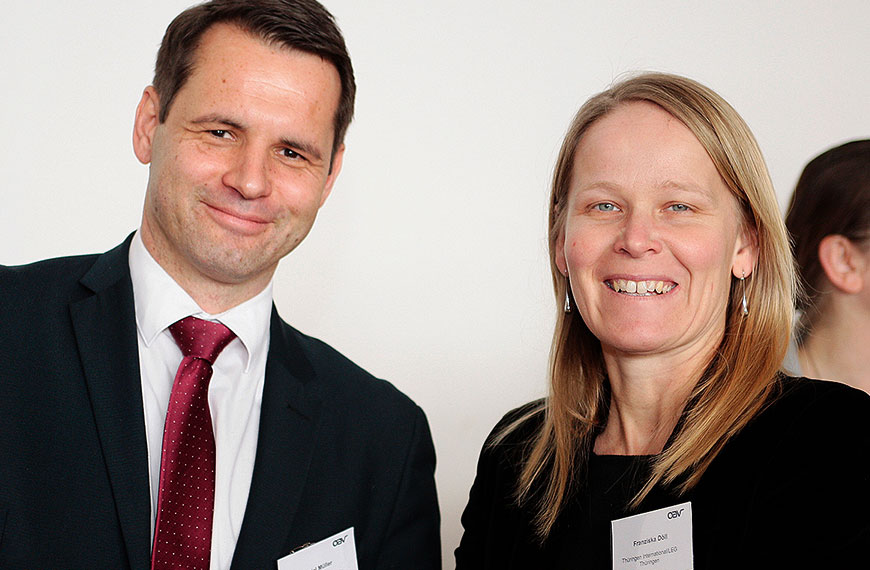
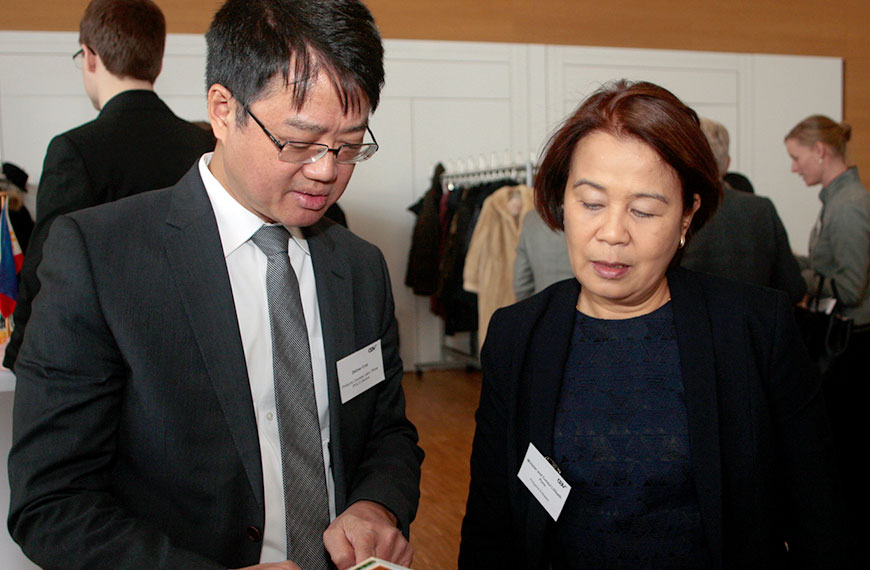
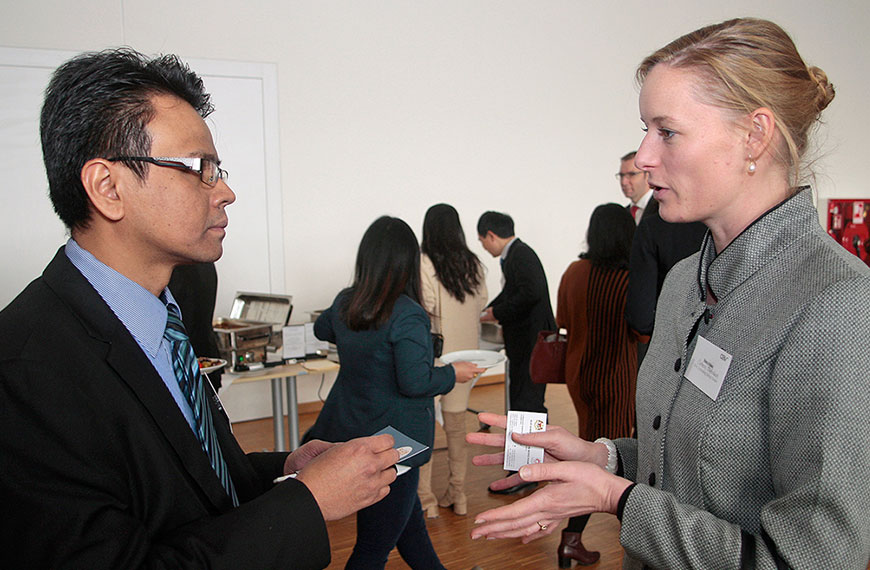
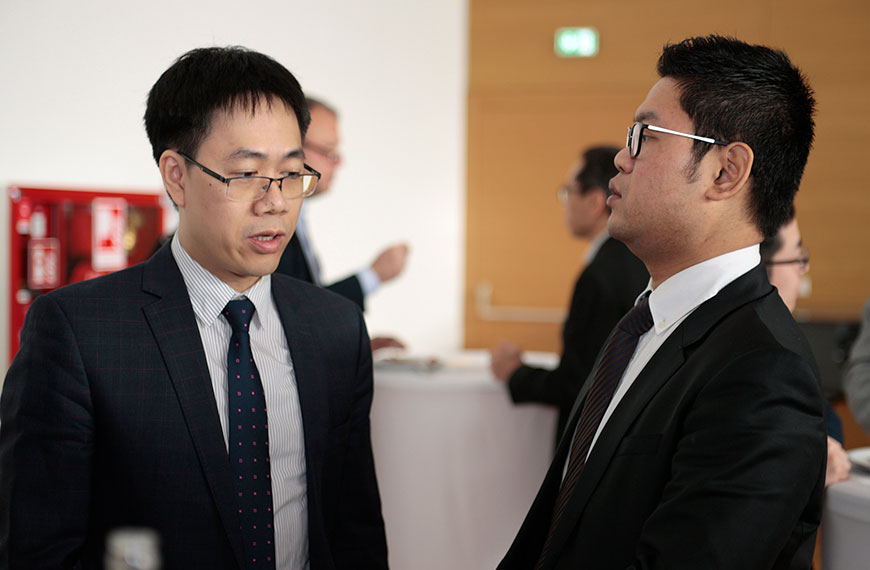
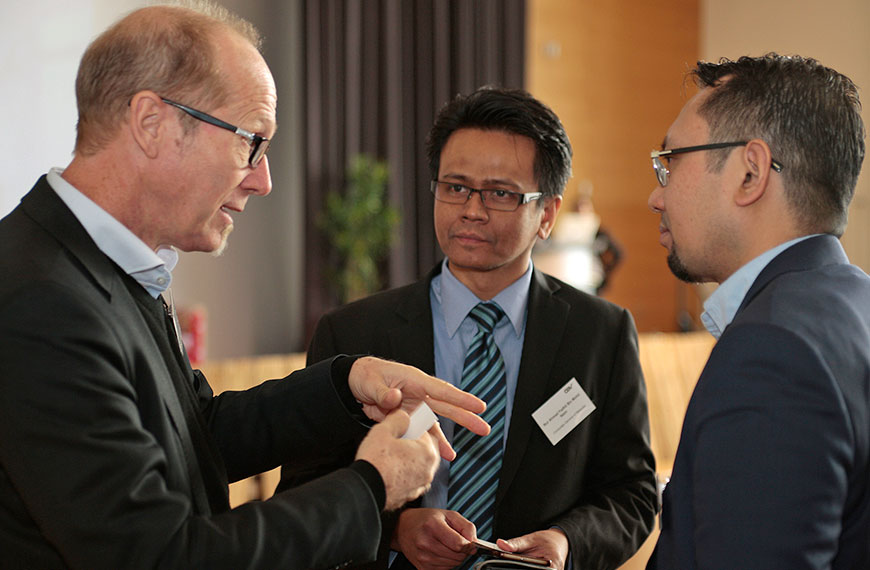
© Photos: OAV - German Asia-Pacific Business Association